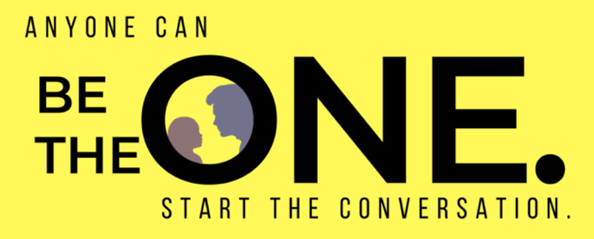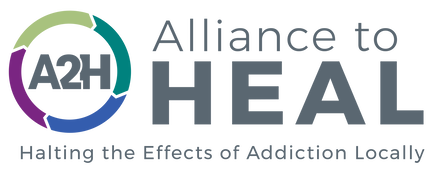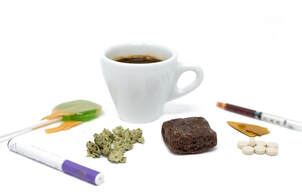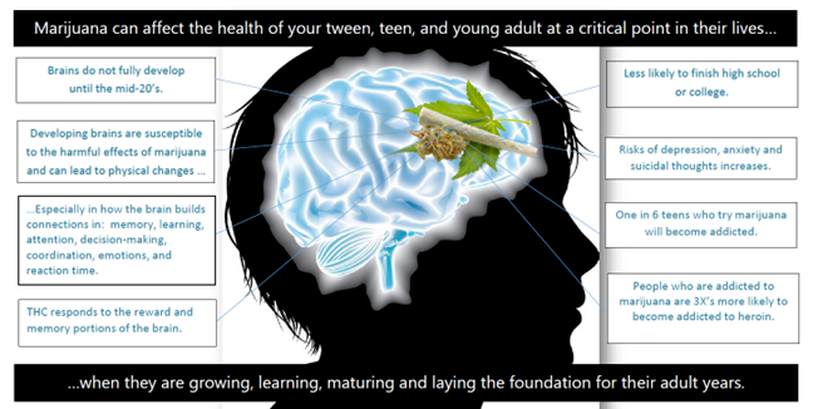THC-Cannabis-Marijuana
What Parents and Community Members Need to Know
1 in 9 |
|
THC potency has been increasing
steadily in the past few decades.
steadily in the past few decades.
Marijuana is derived from the cannabis plant, which produces active chemicals that can affect the entire body when consumed.
CBD and THC are both found in the cannabis/marijuana plant.
CBD and THC are both found in the cannabis/marijuana plant.
- CBD is not impairing, meaning it does not cause a high.
- THC is the mind-altering part of the cannabis/marijuana plant.
- Hemp is another name for the cannabis plant usually grown with low amounts of THC specifically to make products like rope, paper, cloth and soap.
The amount of THC found in cannabis plants seized by the Coulee Region Metropolitan Enforcement Group (MEG) as increased from an average of 3 - 4% in the early 1990's to
between 10 - 17% in 2016. Tom Johnson, MEG Unit, 2016.
between 10 - 17% in 2016. Tom Johnson, MEG Unit, 2016.
People Use cannabis/marijuana in a number of ways:
|
Clockwise: hash oil, shatter, mints, brownie, buds, vape device, sucker, tea
|
|
There is NO "Safe" level of youth Cannabis Use
There are new THC products called Novel (New and Emerging) THC
synthesized from the hemp plant.
Delta 8, 9, 10 and others.
- Novel (new and emerging) THC: Manufacturers extract non-psychoactive chemicals like CBD from hemp and convert the CBD to novel THCs, such as Delta 8 THC, Delta 10 THC and others.
- Some THC compounds altered from the hemp-based CBD are synthetic and are not found naturally in cannabis.
- The THC in these products vary in potency and can cause a marijuana-like high.
- Hemp over 0.3% THC is illegal in WI. Novel THC is legal due to a loophole in the 2018 Farm Bill. There is no minimum age to purchase Novel THC or license to sell. For more information on the 2018 Farm Bill click here
Basic Information on Delta-8
Possible Adverse Effects
hallucinations anxiety sedation dizziness coma confusion seizures vomiting slurred speech tremors difficulty breathing uncoordinated movements |
Poison Control Centers received 2,362 Delta-8 exposure reports from January 1, 2021 to February 28, 2022
40% of all exposures were accidental 82% of accidental exposures involved pediatric patients |
Concerns About Delta-8

No warning labels on packaging.
No FDA or DEA regulations to monitor what is in products:
including concentration, harmful chemicals or metals, or illegal substances.
No FDA or DEA regulations to monitor what is in products:
including concentration, harmful chemicals or metals, or illegal substances.

Easily accessible in grocery stores, gas stations, vape shops, and online.
Delta-8 products may be advertised for uses that are not proven to be safe or effective.
Delta-8 products may be advertised for uses that are not proven to be safe or effective.

No federal or state laws setting a minimum age to purchase products.
Delta-8 products are often packaged and labeled in ways that may appeal to children.
Delta-8 products are often packaged and labeled in ways that may appeal to children.
Prevention Starts with Supportive Adults
THC is Changing PPt.
|
Policy strategies to prevent youth cannabis use, reduce youth access to cannabis, and promote healthy behaviors in communities.
|
Over 80% Of young people ages 10 18 say their parents are the leading influence
on their decision whether to use substances.
Be clear with your expectations.
on their decision whether to use substances.
Be clear with your expectations.

While parents are the most influential people in a child's life, sometimes they need help. Anyone can BE THE ONE
to start conversations with the young people in their lives. In fact, the more a community supports the families who live in the community the healthier the community is.
Thank you for supporting our families
where they live, work, learn and play.
Above is information so that you know what is out there and understand the use disorder that is associated with marijuana.
Below are resources for parents and youth influencers to help with those conversations.
Talk Early. Talk Often.
Marijuana has been increasingly difficult to discuss--in part because of the mixed messages being sent by the passage of medical marijuana law and legalization of marijuana in some states. In addition, many parents, neighbors and professionals have used marijuana when they were younger, whic could make it more challenging to discuss openly or set rules about its use.
Talking to our children about drug use isn't always easy, but it is crucial. We hope that this website and links to other resources helps you to begin the conversation.
Talking to our children about drug use isn't always easy, but it is crucial. We hope that this website and links to other resources helps you to begin the conversation.
Create an environment that encourages communication

Using marijuana is harmful to a child's overall development. As an influence in a child's life the conversation starts with you.
- Avoid lecturing. Use a two-way dialogue to fuel conversation.
- Ask questions, and avoid making judgments.
- Make it an ongoing conversation, not just something you talk about once.
- Be an active listener by making time for the conversation and making sure you are not distracted.
- Do not approach this topic with anger or demonize marijuana, because that increases the chances that kids will shut down.
- Focus on the good. Ask about their goals and share how marijuana use can affect those goals in a negative way.
- Set clear expectations. Establish consequences for use.
- Teach them the difference between facts and opinions.
- Empower them. Help them feel confident in a variety of situations they may experience (such as peer pressure).
- Talk to your child often. Keep the conversation going to create a safe environment for conversation.
- Not all kids choose to use. Remind them that the majority of their peers don't smoke
Let them know they can call you
Tweens and Teens need to know they have somebody to turn to for help. Let them know that if they find themselves in a situation where they feel unsafe, "you can call me and I will help you." Keep the lines of communication open by talking about the situation and how it progressed. Be aware of the child's friends and peers and get to know their parents.
Common Questions and Answers
From: www.drugfree.org
Question: "I know, I know! You've already talked to me about this!"
Answer: “I want us to be able to discuss topics because I love you and I want to help during these years when you’re faced with a lot of difficult choices.”
Question: "Have you ever been offered marijuana?" “Do you know anyone at school who smokes pot? What did they say about it?”
Answer: Acknowledge why some people use marijuana: for a new experience, to fit in, to cope. Brainstorm healthy ways to cope.
Question: "Would you rather I drink alcohol? Weed is so much safer!"
Answer: “Honestly, I don’t want you to be doing anything that can harm you — whether that’s smoking pot, cigarettes, drinking or behaving recklessly. I’m interested in knowing why you think weed is safer than alcohol.”
Question: “Marijuana is a plant. It’s natural. How harmful could it be?”
Answer: “I would much rather you find healthy ways to cope with difficult feelings than turn to drugs. Can we brainstorm activities?”
Question: “But it’s legal in some states; why would they make something legal that could hurt me?”
Answer: “It’s legal at a certain age, like alcohol. I think that people in these states hope that by 21, they’ve given you enough time to make your own decision around it. But, let’s explore your question in more detail, because it’s a good one. Why would states make something legal that could be harmful?”
Question: Child to adult, "Have you ever used marijuana?"
Answer: As an adult, children look up to you for help and guidance in working out problems and in making decisions, including the decision to use drugs. Even if you have used drugs in the past, you can have an open conversation about the dangers. Whether or not to tell the child about your past drug us is a personal decision. Be experience can better equip us to teach others by drawing on the value of past mistakes. You can explain that marijuana is significantly more potent now and that we now know a lot more about the potential harmful effects of marijuana on the developing brain. Be certain the discussion focuses on how much you care about your child's health and achievement of their life goals.
Question: "I know, I know! You've already talked to me about this!"
Answer: “I want us to be able to discuss topics because I love you and I want to help during these years when you’re faced with a lot of difficult choices.”
Question: "Have you ever been offered marijuana?" “Do you know anyone at school who smokes pot? What did they say about it?”
Answer: Acknowledge why some people use marijuana: for a new experience, to fit in, to cope. Brainstorm healthy ways to cope.
Question: "Would you rather I drink alcohol? Weed is so much safer!"
Answer: “Honestly, I don’t want you to be doing anything that can harm you — whether that’s smoking pot, cigarettes, drinking or behaving recklessly. I’m interested in knowing why you think weed is safer than alcohol.”
Question: “Marijuana is a plant. It’s natural. How harmful could it be?”
Answer: “I would much rather you find healthy ways to cope with difficult feelings than turn to drugs. Can we brainstorm activities?”
Question: “But it’s legal in some states; why would they make something legal that could hurt me?”
Answer: “It’s legal at a certain age, like alcohol. I think that people in these states hope that by 21, they’ve given you enough time to make your own decision around it. But, let’s explore your question in more detail, because it’s a good one. Why would states make something legal that could be harmful?”
Question: Child to adult, "Have you ever used marijuana?"
Answer: As an adult, children look up to you for help and guidance in working out problems and in making decisions, including the decision to use drugs. Even if you have used drugs in the past, you can have an open conversation about the dangers. Whether or not to tell the child about your past drug us is a personal decision. Be experience can better equip us to teach others by drawing on the value of past mistakes. You can explain that marijuana is significantly more potent now and that we now know a lot more about the potential harmful effects of marijuana on the developing brain. Be certain the discussion focuses on how much you care about your child's health and achievement of their life goals.







